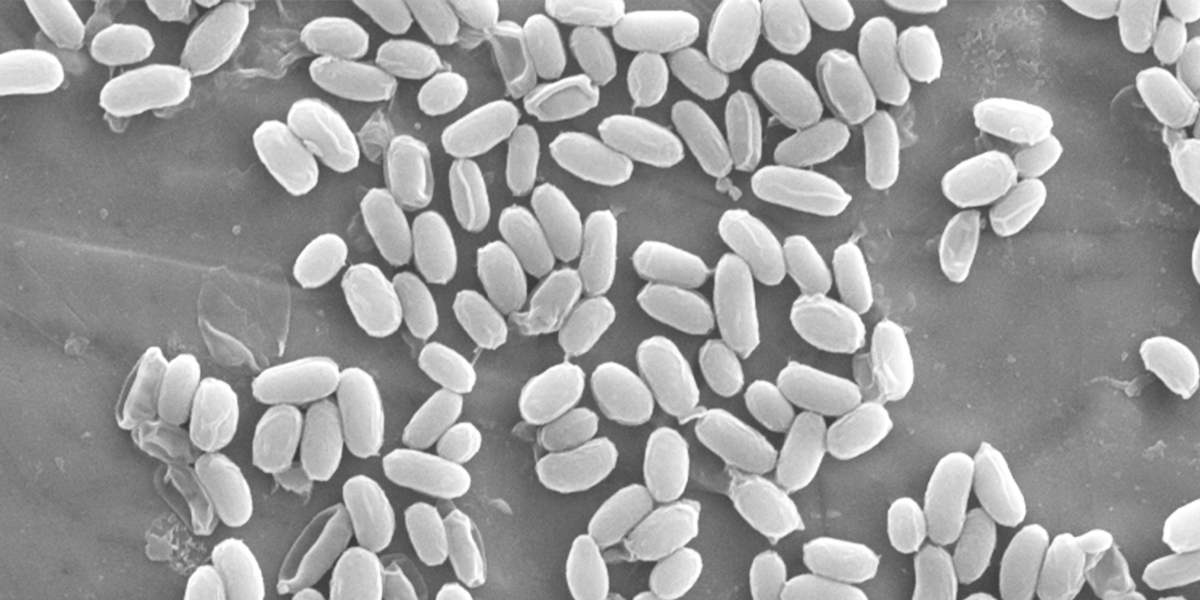VOL 5, ISSUE 1
Spores Do Not Have an Intrinsic D-value

By John R. Gillis, Ph.D.
A major misunderstanding in the industry is that spores have an intrinsic D-value. This is not true if for no other reason than it is impossible to test the resistance of individual spores suspended in space. The spores are placed onto a surface or suspended in liquid and this system becomes the biological indicator (BI). It is the resistance of the system that is measured, not simply the spores.
By definition, the D-value for a biological indicator (BI) is the time (or dose) required at a specified set of exposure conditions to reduce the viable spore population by one log or 90%. Notice in the above definition that the D-value is for the BI, not the spore. One should not forget that the D-value is a measure of resistance performance that refers to the entire BI package and is not a value for the spore itself.
All of the components listed below have an impact on the resistance performance for the assembled BI. Changes to any of the components will likely result in a change in the resistance performance of the BI.
- Carrier material (paper strip, stainless steel disc, liquid suspension) on which the spores are deposited
- Primary packaging (glassine envelope, Tyvek®/mylar envelope, plastic culture tube for EZTest, glass ampoule size and shape for SterilAmp, MagnaAmp and ProSpore)
- Media fill volume and pH for SterilAmp, MagnaAmp and ProSpore indicators
- Batch and Brand of recovery media (TSB for spore strips)
- Incubation conditions for recovery of spores
In addition to the components used to manufacture the BI, slight differences in resistometer performance or programmed test parameters could lead to altered resistance performance. The method by which the D-value is assessed (Survivor Curve or Fraction- negative analysis) can provide different results.
Understanding this concept is particularly crucial regarding the use of spore suspensions and inoculated carriers without primary packaging, i.e., “naked” carriers.
Mesa's spore suspensions are typically suspended in either sterile water or 40% ethanol. Water suspensions are preferred for pharmaceutical applications where the spores will be inoculated into an aqueous based product or formulation for resistance assessment. Ethanol preparations are preferred for direct inoculation of solid goods and equipment (such as dental hand pieces) as the inoculum diluent will flash off faster than a water preparation.
Mesa's spore suspensions are supplied with a D-value. However, one must realize that this value is of very limited use, and it should ONLY be used as a very general means for lot to lot comparison.
There are as many variations of solid or liquid carrier materials as there are medical and pharmaceutical products. Solid carriers can be fibrous (paper, nonwoven polymeric materials) or solid surfaces such as stainless steel, glass, plastic or rubber. Liquid carriers are generally aqueous based, but the actual formulation and active ingredients have a marked influence on the spore resistance.
Solid Surfaces
Not all surfaces are equal. Spores will interact differently with a surface depending on many factors including surface topography, surface hydrophilicity, Spores inoculated onto rubber stoppers used for pharmaceutical product container closures manufactured from different elastomers and produced in different manufacturing tools, exhibit different D-values with the same preparation of spores. An example of this can be seen in Table 1.
Table 1: Pharmaceutical Product Closure (D121)
| 1st Type | Geobacillus stearothermophilus | 1.4 min |
| 2nd Type | Geobacillus stearothermophilus | 2.3 min |
| 3rd Type | Geobacillus stearothermophilus | 6.1 min |
Liquid Carriers
Spores from the same suspension, when inoculated into different pharmaceutical products exhibit a wide variety of resistance. See Table 2.
Table 2: Liquid Product (D121)
| WFI | 3.6 min |
| Product A - 1 x mg/l active ingredient | 2.1 min |
| Product A - 10 x mg/l active ingredient | 4.2 min |
| Product B - with active ingredient | 1.2 min |
| Product B - Placebo (no active ingredient) | 4.9 min |
When using spore suspension to prepare custom BIs (inoculated products) be aware that the inoculated material may have a marked impact on the measured resistance of any given spore suspension. The spores are not unique forms of life in this respect. Natural bioburden contamination, which is the target of the sterilization process, will likely display a similar resistance response.
Mesa can assist you in evaluating this impact by documenting measured resistance using our BIER vessels, our spores and your products. Contact our Contract Studies Laboratory for more information.
For more details refer to The Effect of Carrier Material on the Measured Resistance of Spores, Aseptic Processing a supplement to Pharmaceutical Technology, May 2007.